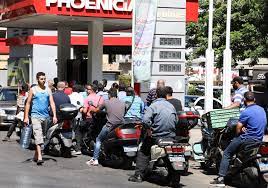WASHINGTON, D.C. — The chairman of the U.S. bishops’ international policy committee joined Pope Francis in his solidarity with the people of Lebanon as their country endures an ongoing and protracted political and economic crisis.
“Pope Francis has expressed his concern for Lebanon on several occasions” and has appealed “to the international community to help Lebanon surmount its political and economic crises and ‘stand apart from conflicts and regional tensions,’” said Bishop David J. Malloy of Rockford, Illinois, chairman of the U.S. Conference of Catholic Bishops’ Committee on International Justice and Peace.
“This country has long been an example to the region and the world,” the bishop said in a statement issued late June 22.
He urged “the faithful and all those of goodwill to pray that the meeting of Lebanon’s Christian leaders with Pope Francis on July 1 will be met with divine grace, mercy and direction at this difficult time in Lebanon’s history.”
The pope announced recently Lebanon’s Catholic, Orthodox and Protestant church leaders will gather with him at the Vatican July 1 for a day of prayer and reflection “on the troubling situation in the country and to pray together for the gift of peace and stability.”
This meeting will “at least give a sign of hope” to the beleaguered country, Archbishop Joseph Spiteri, the Vatican nuncio to Lebanon, told Catholic News Service in mid-June. “The situation is becoming more dramatic.”
Pope Francis repeatedly has expressed his concern about Lebanon, particularly since the August 2020 Beirut port blasts.
The nuncio said the pontiff is “extremely sensitive” to the “mosaic makeup of Lebanon,” which has “always been a meeting place of different communities, different cultures, religiously affiliated groups.” About 35 percent of Lebanese citizens are Christian.
The country has been without a fully functioning government for 10 months, since officials stepped down after the Beirut port explosion. Political leaders have failed to agree on a new Cabinet needed to implement reforms required to unlock desperately needed foreign aid.
Reserves of the central bank have reached a critical threshold, causing fuel, electricity and medicine shortages.
In his statement, Malloy noted that in April, the Assembly of Catholic Patriarchs and Bishops of Lebanon issued an appeal to the international community “to help the people of Lebanon maintain their individual, collective and national rights; overcome the economic crisis; protect Lebanese society’s social fabric; preserve Lebanon’s interreligious character; and support the Christian presence through church institutions.”
“It is vital that we support the work of Catholic organizations working there, such as Catholic Near East Welfare Association, Caritas Lebanon, Catholic Relief Services, and Aid to the Church in Need, who are courageously providing relief and hope,” Malloy said.
Source: Catholic News Service






